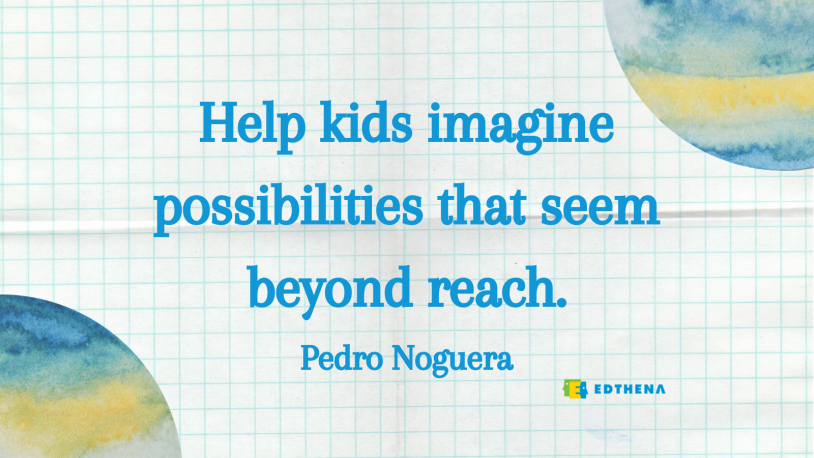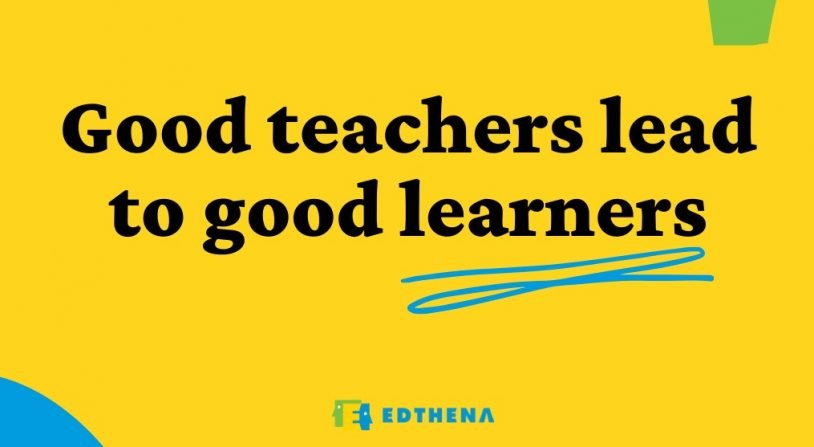Pedro Noguera: Teachers Have Power, and This is What They Can Control
-
Teachers can strengthen relationships with kids by determining what is in their control
-
Teaching is about helping students imagine dreams and possibilities
-
When teachers learn together, they grow together
As part of our #PLtogether initiative, we talked with researcher and school equity advocate Pedro Noguera, dean of USC Rossier School of Education. Pedro discussed his perspective on the power of teachers and the importance of educator collaboration.
Watch the video above, and read on for highlights from the conversation.
Teachers must focus on what they can control
Talking about the influence teachers have, Pedro Noguera emphasized the type of connections they make with students.
“Teachers have the ability to use their classroom and use their time with their students to both build relationships and help kids to imagine possibilities that previously seemed beyond reach,” said Pedro Noguera.

Sharing a personal example from his middle school teacher days, Pedro talked about what to do when factors impacting students were out of his control. Changing their experiences at school was still possible and important.
“While I couldn’t change what was happening to [a student] at home, I could change his experience when he was with me and it made a huge difference for that student and our relationship,” said Pedro.
Pedro urged thinking about what is within the power of teachers to change and for them to ask themselves:
-
What’s it like when that student is with us?
-
What’s their experience like in our classroom?
-
Do they feel safe?
-
Do they feel supported?
There’s more than one might imagine in a teacher’s control. When impacting a student’s experience is the focus, teaching becomes powerful and students can imagine more for themselves.
What students retain depends on what teachers decide is most important
 Deciding what to teach is also within the power of teaching. However, teachers should collaborate with colleagues to come to a consensus about this.
Deciding what to teach is also within the power of teaching. However, teachers should collaborate with colleagues to come to a consensus about this.
If various educators in a school teach an 8th-grade social studies class, they need to get on the same page about what they want students to retain.
Pedro Noguera told us, “It’s very important for teachers to be clear about what’s most important in what they teach … not by themselves but with other teachers.”
Students need to learn how to analyze information, where to turn when they do not know how to answer a question, and most importantly, how they themselves learn.
Pedro explained, “If we’re good as teachers, what our kids get good at is learning …they will become better able to adapt to new material, to changing situations, changing expectations and [how to] have more control over their education.”
Ultimately, teachers determine what is integral and students internalize an ability to own their own academic pathways, setting them up for lifelong learning.
The obstacle of teacher isolation is overcome by working together
The challenge of teaching is creating professional visions- not just in one teacher’s classroom but across an entire school. When teachers work alone, growth and development suffer.
“The biggest obstacle to improving teaching is the isolation of teachers,” said Pedro Noguera. “When teachers are working in isolation from each other, it means that the experiences and the expertise of our best teachers are not available to the other teachers.”
Pedro Noguera envisions an ideal environment “where teachers can work together, learn together, create together, plan together so they can grow together.” This mindset is where educators should place themselves.
By creating a positive and collaborative teaching environment, improvement abounds. Teaching is more fun when working together with others to grow, and most impactful when putting the experiences of students at the center.
Missed our first conversation with Pedro Noguera? Read it here!


